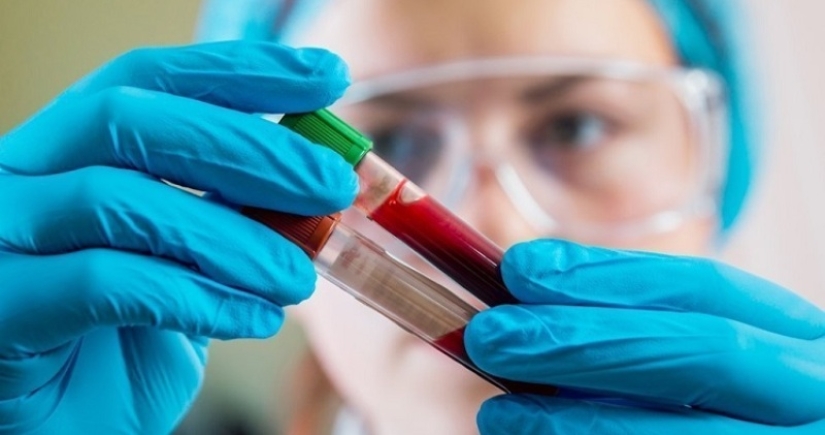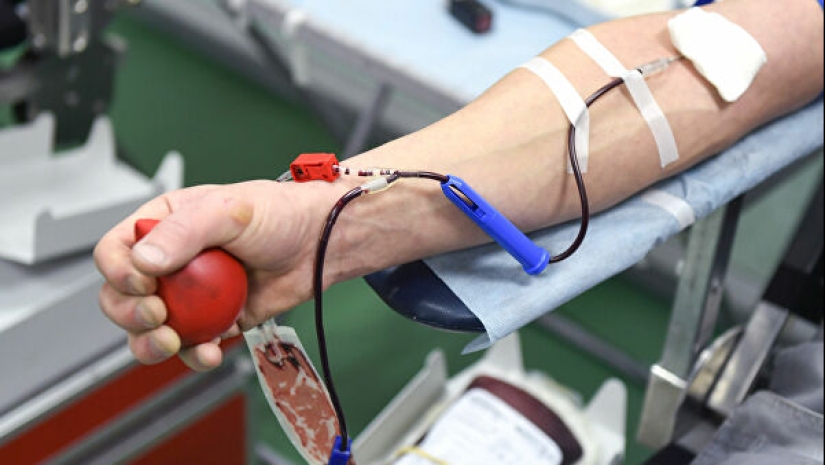"Golden blood" with a zero Rh factor — why it is both salutary and dangerous at once
Categories: Health and Medicine | Science
By Pictolic https://pictolic.com/article/golden-blood-with-a-zero-rh-factor-why-it-is-both-salutary-and-dangerous-at-once.htmlWhen we hear the combination of the words "golden blood", we imagine either a member of the royal family or a miracle drug from Chinese traditional medicine. But in fact, monarchs and their relatives are "blue blood", and this definition has nothing to do with Asian medicines. "Golden blood— is the rarest blood on the planet with a zero Rh factor.

Until 1961, scientists around the world believed that all embryos with a zero Rh blood factor die in the womb. But then they accidentally discovered an Aboriginal woman with such a rhesus and then several more people in different parts of the world. To date, 43 owners of such blood are known, although there are probably many more such people. Whatever it was, "golden blood" is still an incredible rarity and we will now tell you why this happened.

Until the 17th century, humanity had very vague ideas about blood. In 1628, the English physician and anatomist William Harvey discovered human blood circulation. Soon after, the first attempts at blood transfusion were made, which ended in failures and deaths of experimental animals and people.
In 1665, the English doctor Richard Lower successfully transfused blood from dog to dog for the first time. After that, inspired by someone else's success, doctors began trying to transfuse animal blood to a person. The Frenchman Jean-Baptiste Denis showed particular perseverance in this area, sending more than one of his patients to the next world. It all ended with the fact that the secular and ecclesiastical authorities categorically banned transfusion in almost all civilized countries of the world.
Despite the ban, sometimes, for the sake of saving lives, transfusion was practiced. Is known. that in 1815, obstetrician James Blundell saved a patient with postpartum bleeding with the help of transfusion. But successful operations of such a plan were isolated — people, most often, died after transfusion in agony and until the beginning of the 20th century, the cause of these deaths was not clear to anyone.

Transfusion was an illegal lethal "Russian roulette" until 1901, when the Austrian physician and biochemist Karl Landsteiner discovered such a feature of blood as its group. The scientist developed his classification after careful study and verification of the works of Frenchman Leonard Landois, who claimed that the red blood cells of one animal, when transfused, stick together with the red blood cells of another.
The Austrian researcher suggested that this could happen to a person, and the result of transfusion depends on whether the red blood cells have stuck together or not. In 1909, Landsteiner published the results of his work and introduced the world to four blood groups: 1, 2, 3 and 4. For this discovery, the scientist was awarded the Nobel Prize in 1930.
Today, any high school student knows that blood consists of red blood cells (erythrocytes), white blood cells (leukocytes), platelets that ensure blood clotting, and plasma — a special fluid responsible for transporting salts and enzymes. But it is erythrocytes that are responsible for blood groups, since they are covered with protein shells (antigens), certain combinations of which provide differences.

In addition, red blood cells sometimes contain RHD protein. When it is present, the Rh factor is considered positive, and if it is absent, then negative. Antigens can be considered as a kind of passes into the circulatory system, which is guarded by immunity. If the immune cells recognize the antigens as "their own", then transfusion is possible. But if the antigen turns out to be foreign, then protective mechanisms are triggered that can react so violently that they kill the host.
People with a negative Rh factor are considered universal donors, since their red blood cells do not have group 2 and 3 antigens, as well as the RhD protein. Due to this, the immune system cannot detect foreign blood and freely passes it into the body.
In fact, the division into groups and Rh factors is simplified as much as possible. There are many combinations of antigens in the blood of any person. RhD protein is just one of 61 possible proteins of a complex system of Rh factors. If red blood cells do not possess any of the 61 types of protein, then such a Rh factor is called zero, and such blood is called "golden".

Why "golden"? It's simple — it's not only the rarest, but also the only one of all — universal. Such blood can be transfused without fear to people with blood of any group and Rhesus, without fear that the body will reject it. But it is impossible to call the owner of such universal blood a lucky one, because his blood is saving for others, but greatly reduces his own chances of salvation.
The fact is that the owner of the "golden blood" can only be transfused with the blood of another of the same unique with a zero Rh factor. In other words, if such a need arises, it will be incredibly difficult to find a donor for the "lucky one". That is why some people with a zero Rh factor donate blood for themselves during their lifetime, just in case.
Recent articles

There are many places in the world where only the chosen ones can be. The cities of Mecca and Medina in Saudi Arabia are well known ...

This collection of photos will clearly please the little inner perfectionist who lives in each of us. It doesn't matter how much ...

If you don't feel good about the donut you ate for lunch, relax - it can get worse ... At least you didn't eat the ...